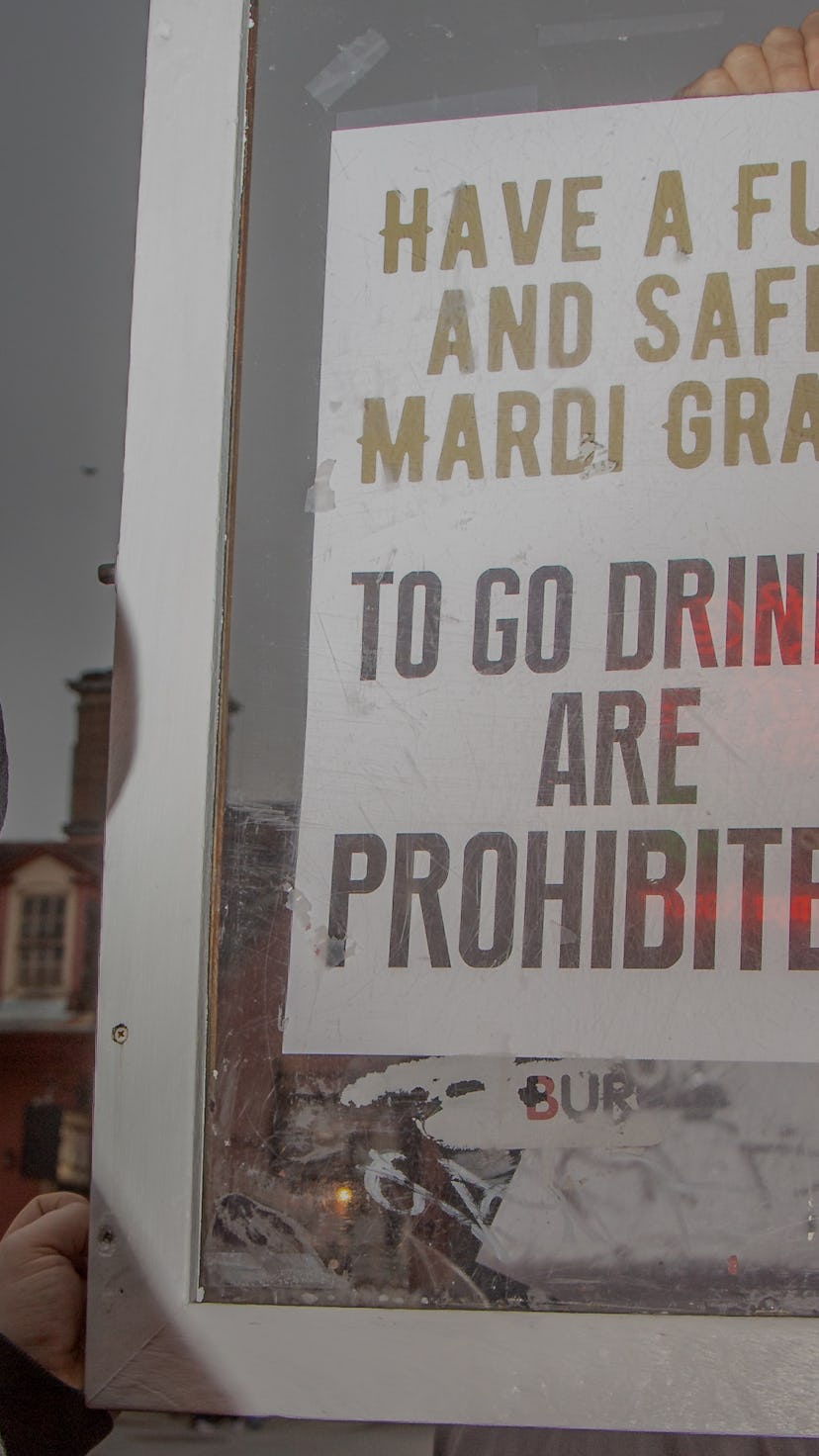The year Mardi Gras didn't happen, in 13 poignant photos

It’s very likely that 2020’s Mardi Gras celebrations, which drew crowds from all over the world, was a covert superspreader event. Even health experts, at that point, weren’t aware of what this spikey beast of a virus could unleash. Because its chokehold hasn’t quite loosened, Mayor Latoya Cantrell shut it all down just shortly after publicly welcoming tourists to the 2021 festivities. No parades. No parties. No particles.
The rebellious, the fed-up, and particularly, the wealthier residents, weren’t having it. Needless to say cops were busy this week — half-heartedly shutting down outdoor gatherings, and enforcing bans on live music, to-go drinks and alcohol sales past 7:00 PM. The cautious yet resilient put on their costumes (and masks) and did what they could to soothe the wounds of a deeply fucked up year of financial strife that they hoped the season would bandage.
This year’s Mardi Gras was modified, eerie and mighty all at once. In its absence of tourists, local New Orleanians celebrated the best ways they knew how: by embracing honesty and being as present as possible despite the circumstances.
Instead of floats parading through the streets, New Orleanians by the thousands turned their front yards into “house floats” for “Yardi Gras.” This one, in the city's Garden District, paid homage to essential workers.
Bar employees updating signage to Mayor Cantrell’s orders of no to-go drinks. Other Mardi Gras week restrictions included no alcohol sales after 7:00 PM in the French Quarter, no live music indoors, and none outdoors without proper city permissions.
Floats that would typically be paraded through the streets of New Orleans sit in one of 6 Kern Studio warehouses until next year.
“Usually, every year, I’m here in my studio building floats into the late night, every day. This year a lot of the floats are unfinished, sitting here in the warehouse. I’m making this one here for no reason at all. Just for my sanity, I guess." - Aubrey Geddie, a New Orleans float artist
Anita Tillman, member of Krewe of Athena, an all-women member krewe that’s one of many community pillars that carry Greater New Orleans, serving as a reminder that Mardi Gras culture is Black culture.
Grand Marshall Gerald Plattenberg packing up band equipment after a police shutdown on Sunday February 14.
This Mardi Gras season, live music was scarce due to extensive permits required for COVID-safe outdoor shows. A few New Orleanians hired brass bands for house parties, but were almost always shut down by the police.
With sweeping restaurant closures, local chefs struggling to find full time work have embraced grassroots, personal delivery models. Chef Sharena Smith, former pastry chef at Compere Lapin, has seen her one-woman business grow by word of mouth, one handcrafted king cake at a time.
“In the beginning it wasn’t a whole lot of business. Now people are talking and I’m making 20 cakes a week, doing pop ups," she says. "If this love continues, I plan on starting a catering business with 5 extremely talented Black women chefs all from here," Smith says.
Gift shops — expecting a surge of tourism following Mayor Cantrell’s welcoming of tourists for Mardi Gras, one week before her announcements of various alcohol bans — found themselves severely overstocked for the largely empty, barricaded streets.
An unusually desolate Bourbon street on the eve before Fat Tuesday.
“Mardi Gras isn’t just about parades and tourists. It’s culture, family and community. Because of the extra time we had this year, we focused on making use of it instead of being down on ourselves. We made toy drives for Christmas, started community fundraisers, and made drive through food drives for our families. Everyone thinks krewes just march. But real Mardi Gras culture, it’s the community first. And no one can take that from us." - Shonitra Vaughan, president of the Krewe of Athena
A reveler walking down Bourbon St. in costume.
“We’re trying. We’re really trying to survive. It’s just terrible. Between doing our best to stay safe while being able to pay our employees, local musicians. It’s tough. But we’re all going through it all over New Orleans." - Jarret Rogers, Owner of Buffa’s Bar and Restaurant